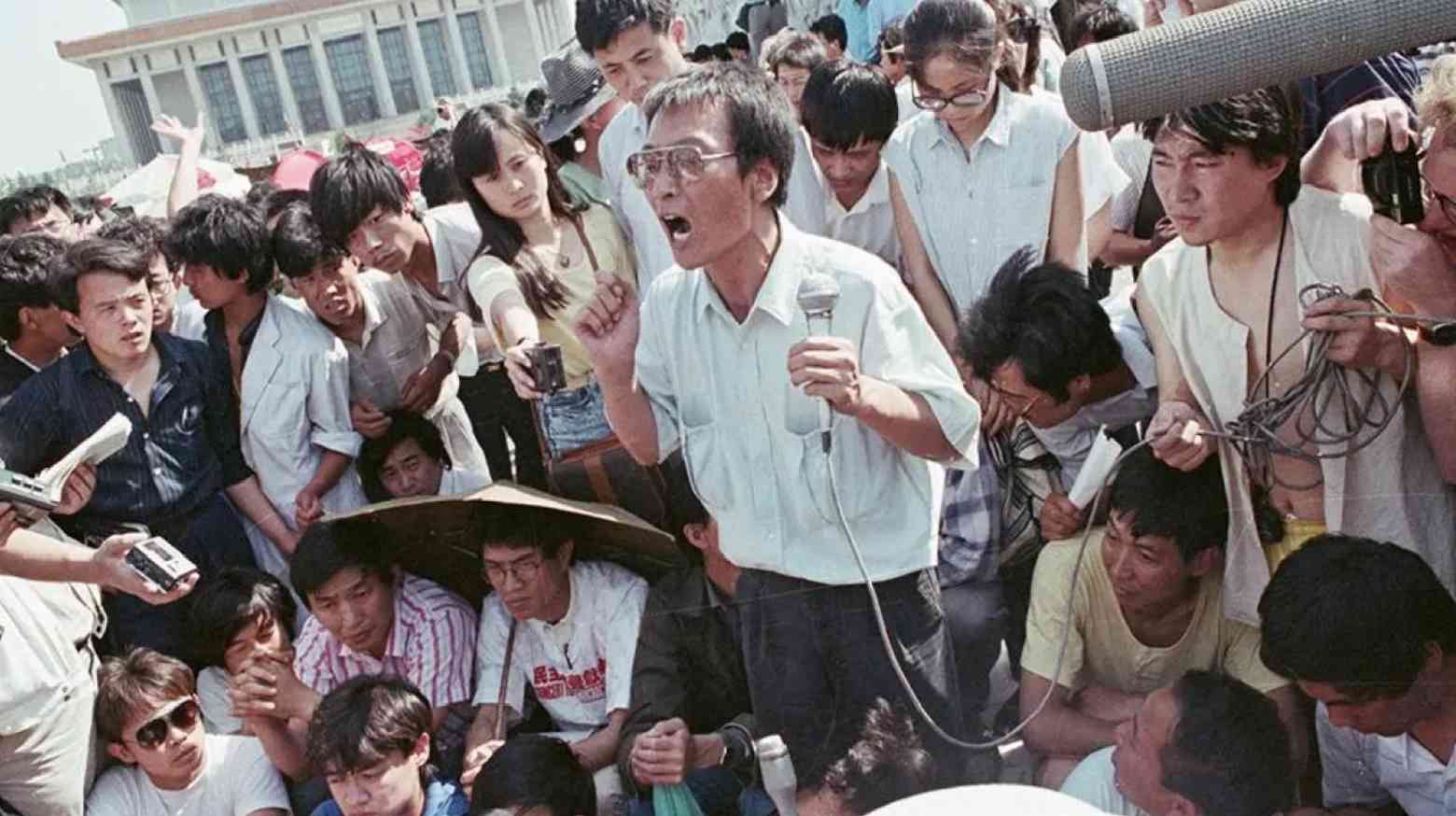
In yet another chilling episode of political repression, Chinese authorities have reportedly detained Mei Shilin, a 27-year-old man who dared to raise his voice against authoritarian rule.
Mei, a young resident of China’s southwestern Sichuan province, displayed three pro-democracy banners on an overpass outside Chadianzi Metro Station in Chengdu on April 15.
Just days later, he has vanished from public view, believed to be held in criminal detention by state security forces.
According to sources familiar with the incident, Chinese authorities are now investigating whether Mei had any “overseas connections” — a phrase that has increasingly become a euphemism for dissident activity or alleged foreign subversion.
The exact date of Mei’s detention remains uncertain, but what is clear is that his bold act of resistance has placed him in the crosshairs of the Chinese state’s vast surveillance and security apparatus.
The disappearance of Mei Shilin is not an isolated event. Rather, it reflects a broader trend of enforced disappearances, extralegal detentions, and political crackdowns that have come to define the Xi Jinping era.
As the Communist Party tightens its grip on every facet of public expression, young citizens like Mei — inspired perhaps by global democratic ideals or the legacy of past protestors — find themselves crushed under the weight of an increasingly intolerant regime.
A banner, a message, a warningThough details of Mei’s banners have not been publicly released, pro-democracy signage in China is often short-lived, as security forces rapidly move to erase any visible form of dissent.
- Warrant of arrest canceled for illegal billboard accused
- The trial of Directors accused of erecting illegal billboard deferred again
- Illegal Borrowdale billboard erector issued with warrant of arrest again
- Warrant of arrest against billboard businessman
Keep Reading
In 2022, the now-famous “Bridge Man” protest in Beijing — where a lone man hung banners criticising Xi Jinping ahead of the Communist Party Congress — became a viral symbol of defiance, even as the state swiftly erased all digital and physical traces of the act.
Mei Shilin’s action appears to echo that same spirit.
Choosing a visible and crowded public location like the Chadianzi Metro Station overpass suggests a deliberate attempt to draw attention to his message, no matter the personal cost.
It also underscores the extent to which even the most peaceful form of expression — hanging a banner — is criminalised under the current regime.
The machinery of repressionChinese security forces operate with ruthless efficiency in cases like these.
Surveillance cameras blanket urban spaces, allowing authorities to quickly identify and track down individuals engaged in protest.
Once caught, dissidents are often subjected to “criminal detention” — a vaguely defined legal tool that permits up to 37 days of confinement without formal charges, often used as a prelude to more severe prosecution under charges such as “subversion of state power” or “inciting separatism.”
Moreover, the investigation into whether Mei had “overseas links” highlights Beijing’s paranoia regarding foreign influence.
It plays into the state’s preferred narrative: that dissent is never homegrown but always the result of foreign meddling.
This tactic not only delegitimises legitimate grievances but also isolates Chinese activists from the global community, which may otherwise rally to their support.
The growing silenceWhat is perhaps most alarming is not just the act of disappearance itself but the deafening silence that follows. In an environment where citizens are taught to fear even association with dissenters, few dare to ask questions.
Mei’s fate, like that of so many others before him, may soon become just another unconfirmed whisper, buried under the weight of censorship and fear.
Social media platforms in China are heavily censored, and any posts related to Mei’s protest have likely been scrubbed.
Traditional media remain entirely under state control, ensuring that the public at large remains unaware not only of Mei’s protest but also of his subsequent detention.
A familiar patternMei Shilin’s case is sadly reminiscent of other young Chinese citizens who have risked their freedom to demand change.
From the student leaders of the 1989 Tiananmen protests to the anti-lockdown demonstrators of the 2022 White Paper Movement, Chinese history is punctuated by acts of individual and collective defiance — each met with the full force of the state.
What distinguishes the current era is the sheer technological sophistication with which dissent is identified and eliminated.
AI-powered facial recognition, location tracking via mobile devices, and real-time social media monitoring have made it nearly impossible for activists to remain anonymous or escape surveillance.
As a result, acts of resistance today are not only more dangerous but also more fleeting — extinguished before they have a chance to gain momentum.
A generation at a crossroadsThe fact that Mei Shilin is just 27 years old is telling.
Born in the late 1990s, he represents a generation raised amid China’s economic boom and technological ascension, yet one that has grown increasingly disillusioned with the absence of political reform.
While older generations may still remember the brief flickers of liberalisation in the 1980s, for young activists like Mei, authoritarianism is the only political climate they’ve ever known.
Nevertheless, this generation has begun to show signs of restlessness.
The 2022 anti-lockdown protests, which saw young people across major cities hold blank sheets of paper to protest censorship, were a striking display of their resolve.
Mei’s banners in Chengdu might be a continuation of that same frustration — a reminder that beneath the surface of apparent stability, discontent simmers.
A vanishing pointAs of now, no official statement has been made regarding Mei Shilin’s whereabouts, charges, or condition.
Family members and friends, if they have spoken at all, likely face their own risks.
This lack of transparency is a feature, not a bug, of China’s authoritarian system. It serves as a deterrent — a warning to others who might contemplate following in Mei’s footsteps.
There is a cruel efficiency in how the Chinese state handles dissent: it makes people disappear not only from the streets but from public memory. Without names, without faces, without stories, resistance is rendered invisible. And invisibility, in turn, breeds hopelessness.
But even as the state works to erase Mei Shilin, his act remains. A banner was raised above a crowded metro station. A voice, however brief, refusing to be silent.
In a country where speaking out can mean vanishing forever, even the smallest act of courage becomes monumental.
And so, Mei joins the ranks of those who have stood up — and “forcibly disappeared”. Their stories, when they do surface, offer the world a brief, haunting glimpse into the cost of defiance in China today.







